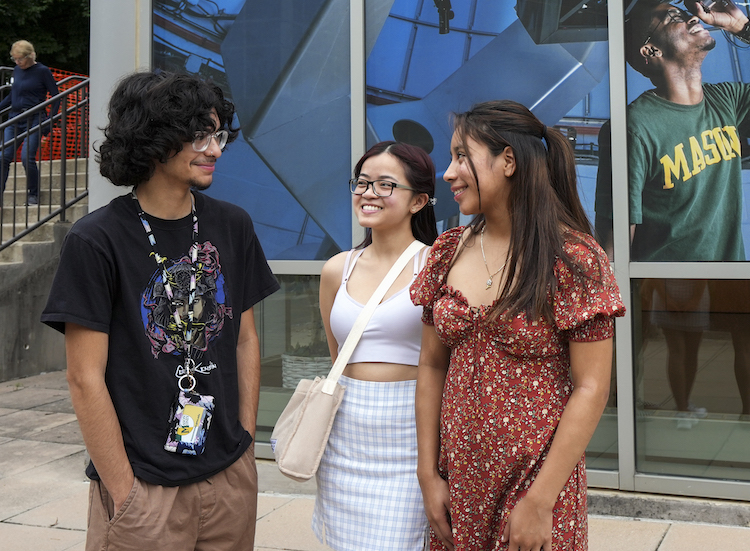Meet the Class of 2026
- October 13, 2022
- September 15, 2022
- August 31, 2022
- August 30, 2022
- August 23, 2022

Linh Vu, a recent graduate of Lake Braddock High School in Fairfax County, Virginia, spent six weeks this summer living on George Mason University’s Fairfax Campus preparing for her first year of college.
Vu, who plans to study nursing, attended Mason’s Student Transition Empowerment Program’s (STEP) Summer, a residential program for incoming Mason first-year students who are also first-generation. Participants, who are selected through an application process, live on campus and participate in a variety of workshops and activities aimed at helping them navigate college and build a support system. They also earn three college credits.
“I’m going to be a commuter student; I was worried about being part of the community. But now, because of being in this program, I already feel a part of it,” Vu said. “Through STEP, I got a chance to understand Mason better.”
STEP is an initiative of the First-Gen + Center created to enhance the recruitment, engagement and retention of first-generation college students. Its mission is to empower first-generation students through academic skill development, access to resources, community building and self-discovery. This year, the summer program had 37 student participants and 10 staff members, all of whom also were or are first-generation college students themselves. The program, free to participating students, is funded by the Commonwealth of Virginia.
Kelsey Ruiz, a STEP Summer staff member, said that first-generation college students often struggle because they don’t have the advantage of parents who have experienced college and understand how it works. In addition, first-generation college students can come from lower-income circumstances.
“While they are at STEP Summer, the students are getting the best of the college experience. It is an opportunity not to worry about food or housing insecurity,” said Ruiz. “Students also go on activities together and have critical community dialogue sessions about identity and respecting themselves and each other.”
Neyda Gonzalez, who graduated from Justice High School in Fairfax County, said she’s grateful for the opportunity through STEP Summer to meet other students before the fall semester.
“I was worried I would feel alone, but now I’ve already started making friends and memories,” Gonzalez, who plans to study accounting. “STEP helped me understand and get to know other first-generation students who are different from myself. That’s important because Mason is such a diverse school, and now I feel like I will be able to connect with more people because I’ve already experienced the diversity in STEP.”
STEP evolved to its current format and structure from the initial Student Transition Program, started in 1990 to increase college access and retention for Virginia Black, Hispanic and Latino college students, according to Amber Holton-Thomas, director of the First-Gen+ Center.
“Students who participate in STEP have six weeks together, gain college credits, and build community,” said Holton-Thomas. “The most valuable aspect is that the program doesn't end after summer, but instead is a multi-year support initiative. STEP Scholars have support, programming and scholarships throughout their entire time at Mason."
Jacie Hernandez, who graduated from Liberty High School in Fauquier County, plans to study computer game design at Mason. Hernandez said STEP Summer helped with anticipating what the fall semester might be like.
“It was an honor to be part of the program,” Hernandez said. “I feel ready to start the next chapter of my life.”
